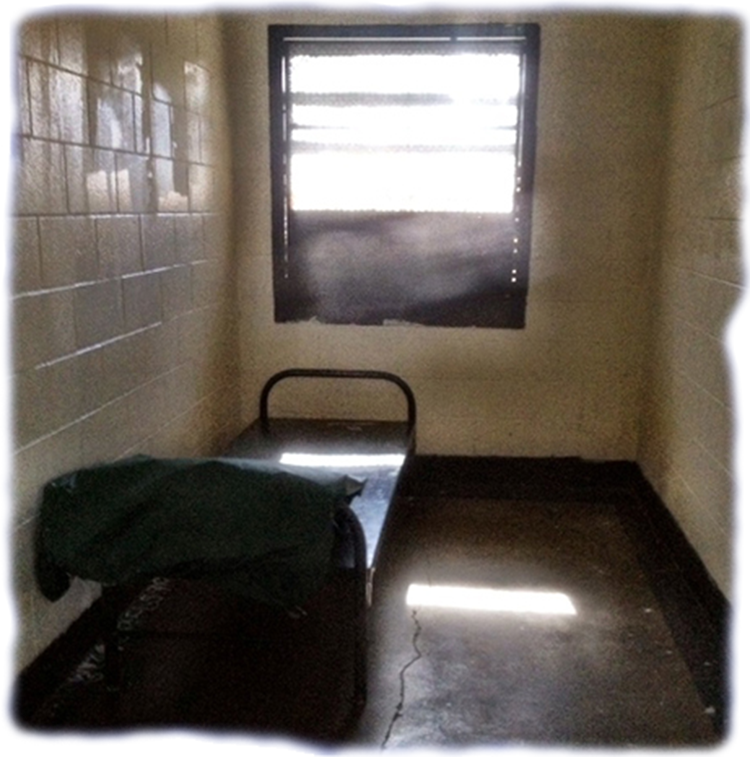
Juvenile justice reform advocates were able to claim a partial victory after a Tennessee judge ruled that a 16-year-old can’t be kept in an adult prison while she waits for trial on murder charges — but they stressed that the real struggle for her humane treatment has only just begun.
Teriyona Winton, of Memphis, Tennessee, is charged as an adult in the April 3 shooting death of 17-year-old Deago Brown. She was 15 at the time of the slaying. Since her arrest, she’s been shuttled back and forth between the Shelby County Jail and a women’s prison in Nashville, Tennessee, kept mostly in solitary confinement. Last week, a state judge ruled that Winton doesn’t have to wait in the adult prison, and will instead be transferred back to Shelby County jail’s East Wing.
The order is an incremental victory for Winton and for those who are serious about the humane treatment of juvenile detainees, said her lawyer Josh Spickler. But the real confrontation with Shelby County now begins.

Josh Spickler
“It's about their failure to provide a facility or programs for youth — especially girls,” Spickler said. “It all starts at juvenile court, and the judge transferred responsibility for detention to the sheriff. Once that happens, and once kids' cases are transferred to adult court, he washes his hands of them and is protected statutorily to in doing it.”
Spickler is a former public defender and founder and executive director of Just City, a nonprofit juvenile justice reform group.
Efforts to reach Shelby County Sheriff’s Department officials were unsuccessful.
Winton was transferred to adult prison under an 1858 Tennessee law that allows detainees to be moved for “safekeeping,” Spickler said. In principle, it’s supposed to offer extra precautions for particularly high-risk arrestees. In practice, it has become a way to warehouse the sick — and, in Shelby County at least, girls charged with serious offenses, Spickler said.
“What's unique about this girl is simply that she's a girl charged with murder,” Spickler said. “If she were a boy charged with murder, she would be with 26 other boys with resources, including education, recreation and socialization.”
The onus is now on Shelby County officials to come up with a practical and safe solution for his client — quickly — or face further litigation.
“We aren’t going to wait for the sheriff to find a way to deal with our client,” Spickler said. “It’s very clear to anyone following it that there’s a lot of liability. But we can’t fix it — it’s up to the sheriff.”
It’s ultimately tragic that things have been allowed to fester in Shelby County for so long, he added.
“It’s appalling that their solution is to ship a 15-year-old girl 200 miles away to a women’s prison and keep her in solitary confinement,” Spickler said. “She’s charged with a serious offense and if she’s going to be detained, it has to be under conditions that are humane and constitutional and that meet her needs.”
Winton’s case has attracted national attention from juvenile justice reformers. Last week, ahead of the judge’s ruling, the National Juvenile Justice Network made her the focus of a “Jane Doe” alert to thousands of practitioner-advocates.
“We know that the official stats are that about half of youth residential facilities report using solitary confinement to control behavior,” NJJN Executive Director Sarah Bryer said. “But when you dig a little deeper, you see that the data is extremely uneven and often is only gathered comprehensively when a special commission is convened on the local or state level.”
Things are even muddier in the context of adult jails and prisons, she added. “We don't have comprehensive data on youth in adult facilities, because there is no requirement to collect data on the treatment of youth in adult facilities,” she said.
“Here's what we do know,” Bryer said. “The evidence is clear that being in solitary is extremely damaging to a youth's mental health, leads to increased suicidal behavior and can make it extremely difficult for the youth to get back on track once released. We also know that extended periods of isolation are a known form of torture of political prisoners.
“For teens whose brains are going through an amazing period of development, it is incomprehensible why we would want to lock that child's brain in a cell without any human contact,” she said. “Even if you were inclined to ignore the fundamental inhumanity of placing children in solitary confinement, and were only concerned with public safety, this is the wrong course of action to take.”
‘Frontline’ Digital Special Examines an Issue of Juvenile Justice